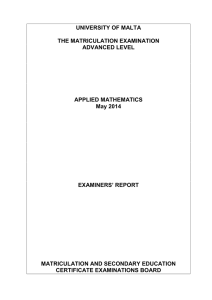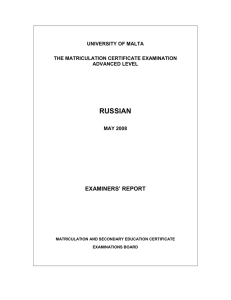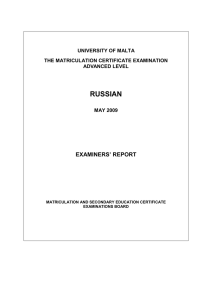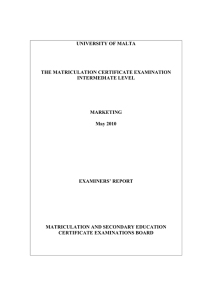UNIVERSITY OF MALTA THE MATRICULATION CERTIFICATE EXAMINATION INTERMEDIATE LEVEL
advertisement
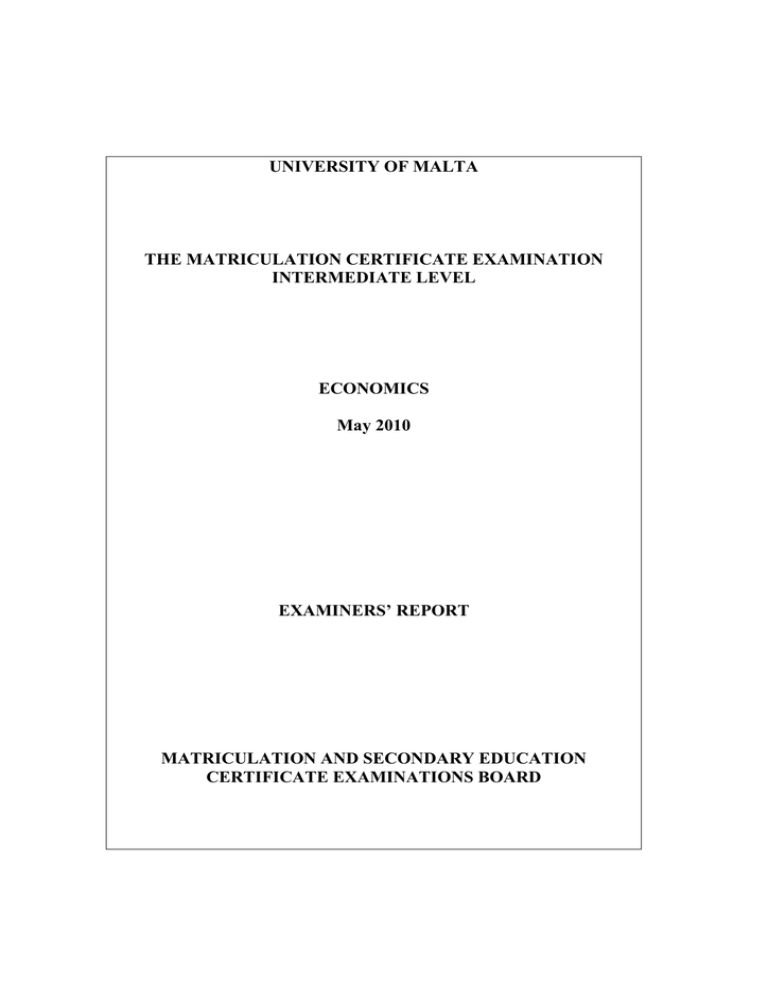
UNIVERSITY OF MALTA THE MATRICULATION CERTIFICATE EXAMINATION INTERMEDIATE LEVEL ECONOMICS May 2010 EXAMINERS’ REPORT MATRICULATION AND SECONDARY EDUCATION CERTIFICATE EXAMINATIONS BOARD Introduction The Economics Intermediate paper touched on most aspects of the syllabus, with a slightly higher emphasis on unemployment, inflation and macro-economic policies. There was also a very good balance between questions that touched upon the knowledge and understanding of economic principles and questions that focussed on the practical application of those principles. Candidates need to understand that in a number of areas they need to keep abreast of developments taking place and even changes that are taking place in aspects of economic management, such as monetary policy. Statistics Table 1: MATSEC Intermediate Level Econonics, May 2010 Distribution of Grades Grades No. of candidates A 3 B 13 C 23 D 21 E 9 F 11 Absent 1 TOTAL 81 The examiners believe that once more they need to highlight the inability of several candidates to express themselves logically and correctly in English. Candidates are to understand that such a failure causes loss of marks since it generates uncertainty as to whether they have really grasped and understood the economic concepts being examined in the questions posed. Another comment that is repeated from previous years is that there were several instances where candidates used graphs and examples to support their arguments and such graphs and examples did not reflect their explanation. There was a difference between the point illustrated by the graph or the example and the explanation of the principle or theory made by the candidates. It was fairly evident that, although the Intermediate Level examination Paper covered a wide range of topics, several candidates had prepared themselves in a narrow range of these topics. This led to them obtaining high marks in some questions but very low marks in others, thereby preventing them from achieving a higher grade. In terms of specific topics, some candidates misunderstood the question concerning ways of measuring economic growth and even went out of point. The questions about unemployment and mobility of labour were also found to be more challenging. With regard to the questions that required a short answer, candidates generally found difficulty with the questions that dealt with economies of scale, supply and inflation. The average mark obtained was 52%. This is the same as that of 2009. Of those that sat for the exam, 45% obtained a lower mark, 4% obtained the average mark, while 51% obtained a higher than average mark.
